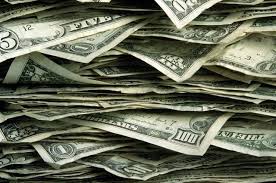 The ambiguity of the word “valuable” has always been a sticking point for MVP voters at the end of the year. Does the MVP award belong to the best player, or the player who’s most integral to his team’s success?
The ambiguity of the word “valuable” has always been a sticking point for MVP voters at the end of the year. Does the MVP award belong to the best player, or the player who’s most integral to his team’s success?
Depending on where you stand in that debate, you will either be siding with LeBron James, who by most accounts is still the most dominant player in the league, or Kevin Durant — who has maintained Oklahoma City’s elite level even in Russell Westbrook’s absence this season. (Or Blake Griffin-CS)
For the Sixth Man award, the voting should not be as ambiguous. The Sixth Man Award inherently should go to the reserve who is most important to his team’s success. Among this year’s candidates (there are plenty to choose from), it’s actually pretty clear who is the most “valuable” to his team.
The easiest way to identify how much value a reserve brings to his team is by identifying his split stats between his team’s wins and losses. If a star reserve has a good game, does it generally result in a win for his team? Conversely, if a star reserve plays poorly, does it spell doom?
In all but one case among current candidates, the answer to those questions was a resounding “no.”
Taj Gibson’s split stats are nearly identical regardless of where he plays. He averages just one more point in wins and logs the exact same number of rebounds. While he’s certainly a great player enjoying a breakout season, his individual success rarely distinguishes a win from a loss for his team.
Manu Ginobili actually averages more points in losses (12.7) than in wins (12.5). He averages nearly an assist more per game in wins but, again, it’s hard to conclude that the Spurs rely on Ginobili in order to win.
Reggie Jackson’s splits are slightly more distinguished in wins and losses. He averages nearly three more points per game and shoots 34 percent from deep in wins (still not a great percentage but a noteworthy improvement from 28 percent in losses) . However, his rebounding and assist numbers remain constant.
 Which brings me to Markieff Morris, the most valuable sixth man in the NBA.
Which brings me to Markieff Morris, the most valuable sixth man in the NBA.
When Morris has played this season, the Suns have gone 38-29. In the 29 losses, Morris’ numbers look pedestrian: 11.3 points (42 percent FG), 5.0 rebounds, 1.2 assists and 20 percent from three. Phoenix has overachieved more than any other team in the league and Morris’ explosive offense in wins is a big reason why.
Compare those pedestrian numbers in Phoenix’s losses to Morris’ output in wins: 15.3 points (53 percent FG), 6.5 rebounds, 2.1 assists and 37 percent from three. Morris even turns the ball over less despite a higher usage rate in these games.
Now, consider this: Morris is averaging those numbers in only 27 minutes per game.
For a frame of reference, Chris Bosh is averaging 16.8 points (53% FG), 6.8 rebounds, 1.1 assist and 37% from deep in 33 minutes per game.
When Markieff Morris plays like Chris Bosh, the Suns look like a dangerous playoff team (they’ve taken care of OKC and San Antonio handily within the last month.) When Markieff Morris plays like Byron Mullens, the Suns look awful (they lost to the Knicks, who were reeling at the time, and Detroit consecutively in January when Morris was slumping).
Morris has helped the Suns stay relevant in a grueling Western Conference. That’s why he’s my pick for Sixth Man of the Year if the season ended today.
On to the rankings…
D.J. Augustine not even mentioned? Have you actually watched any Bulls games this year?